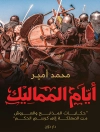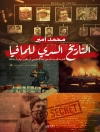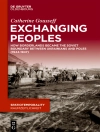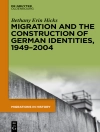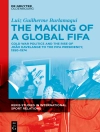In vielen Diktaturen – im nationalsozialistischen Deutschland ebenso wie in der Sowjetunion – wurden regelmäßig Wahlen und Referenden abgehalten. Solche scheindemokratischen Wahlen waren nicht nur Mittel der Propaganda. Sie hatten, so zeigen die Beiträge dieses Bandes, durchaus eine Bedeutung für die Funktionsweise diktatorischer Herrschaft im 20. Jahrhundert.
Cuprins
Contents
Introduction
Non-Competitive Elections in 20th Century Dictatorships:
Some Questions and General Considerations 9
Ralph Jessen and Hedwig Richter
I Legitimacy
The Self-Staging of a Plebiscitary Dictatorship: The NS-Regime
Between ‘Uniformed Reichstag’, Referendum and Reichsparteitag 39
Markus Urban
Popular Sovereignty and Constitutional Rights in the USSR’s
Supreme Soviet Elections of February 194659
Mark B. Smith
Integration, Celebration, and Challenge: Soviet Youth and Elections,
1953-1968 81
Gleb Tsipursky
Mass Obedience: Practices and Functions of Elections
in the German Democratic Republic103
Hedwig Richter
Elections in Modern Dictatorships: Some Analytical Considerations126
Werner J. Patzelt
II Discipline
The Great Soviet Paradox: Elections and Terror in the Unions,
1937-1938 147
Wendy Z. Goldman
Plebiscites in Fascist Italy: National Unity and the Importance
of the Appearance of Unity 173
Paul Corner
Works Council Elections in Czechoslovakia, 1948-1968 186
Peter Heumos
Faking It: Neo-Soviet Electoral Politics in Central Asia 204
Donnacha Ó Beacháin
III Dissent and Loyalty
Elections, Plebiscitary Elections, and Plebiscites in Fascist Italy
and Nazi-Germany: Comparative Perspectives 231
Enzo Fimiani
‘Germany Totally National Socialist’-National Socialist
Reichstag Elections and Plebiscites, 1933-1938: The Example
of Schleswig-Holstein 254
Frank Omland
Elections in the Soviet Union, 1937-1989: A View into
a Paternalistic World from Below 276
Stephan Merl
‘The People’s Voice’: The Elections to the Supreme Soviet
of the USSR in 1958 in the Belarusian Capital Minsk 309
Thomas M. Bohn
Contributors337
Index341


